Here are the 10 new books you should read this week.
Every week, a new crop of great new books hit the shelves. If we could read them all, we would, but since time is finite and so is the human capacity for page-turning, here are a few of the ones we’ll be starting with. What are you reading this week?
FICTION
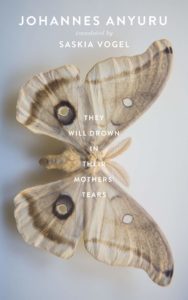 Johannes Anyuru, tr. Saskia Vogel, They Will Drown in Their Mothers’ Tears
Johannes Anyuru, tr. Saskia Vogel, They Will Drown in Their Mothers’ Tears
(Two Lines)
One of the impoverishments of most terrorist attack fiction is how hard such novels find it to imagine anything else. Anger, radicalization, brutality, shock and the aftermath of trauma: it often feels too much like a replay of what television has already shown us. This new novel by Swedish writer Johannes Anyuru departs fantastically from this script. It begins with an assault on a comic book store during an event by a cartoonist who has made jokes at the Prophet’s expense, but where it goes from there is strange, magical, and one of the first books to emerge out of our modern time to touch terrorism the way Vonnegut did war. Anyuru doesn’t shock the mind, but rather force us to ask new questions about what being a spectator truly means.
–John Freeman, Executive Editor
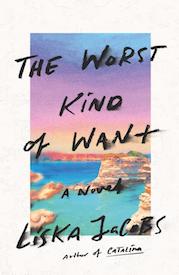 Liska Jacobs, The Worst Kind of Want
Liska Jacobs, The Worst Kind of Want
(MCD)
Jacobs’s sophomore novel is an unconventional—and disastrous—love story, as death-steeped, sultry, and delicious as the ancient Italian cities in which it’s set. A woman in her forties comes to Rome to watch over her wayward nice, but is rather seduced by all the youth and beauty around her. Yes, this is a euphemism. Imagine a more pessimistic, slightly sordid Call Me By Your Name and you’ll be halfway there.
–Emily Temple, Senior Editor
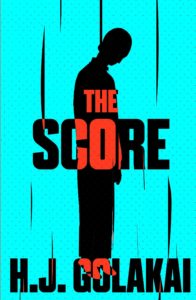 H. J. Golakai, The Score
H. J. Golakai, The Score
(Cassava Republic Press)
Golukai’s reporter-activist heroine Vee Johnson returns for her second investigation, as she and her partner stumble upon a murder in the midst of what was meant to be a punishingly boring assignment reviewing a dusty tourist lodge in the middle of nowhere. As the journalists investigate, they’re drawn into an intricate web of corruption, murder, and dog-walking. Cassava Republic is one of the coolest indie international presses around, and I read all their releases religiously.
–Molly Odintz, CrimeReads Associate Editor
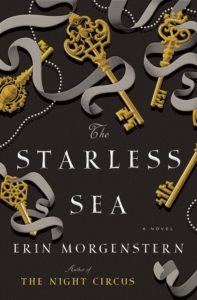 Erin Morgenstern, The Starless Sea
Erin Morgenstern, The Starless Sea
(Doubleday)
I was at the American Library Association conference in DC a week ago and the line to acquire an early copy of this one—a sweeping love story set in a secret underground world of pirates, painters, lovers, liars, and magical ships—was so long that I just assumed there was some wonderful new drug or open bar at the end of it. If that isn’t a good omen for this follow-up to Morgenstern’s beloved 2011 fantasy debut, The Night Circus, I don’t know what is.
–Dan Sheehan, Book Marks Editor
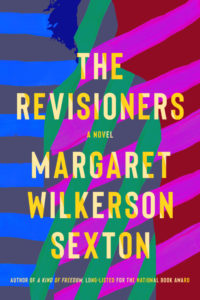 Margaret Wilkerson Sexton, The Revisioners
Margaret Wilkerson Sexton, The Revisioners
(Counterpoint)
Sexton’s follow-up to her National Book Award-nominated debut, A Kind of Freedom, tackles generational legacies, the echoes of history, and strength of bonds between women. R. O. Kwon called it “a time-bending epic about family, desire, strength, and terror, as well as the possibly supernatural power of the stories we tell ourselves,” which is good enough for me.
–Emily Temple, Senior Editor
NONFICTION
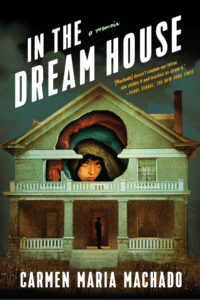 Carmen Maria Machado, In the Dream House
Carmen Maria Machado, In the Dream House
(Graywolf)
This is an elliptical memoir of abuse whose form will delight anyone who a) grew up reading fairy tales and choose your own adventure stories b) proceeded to get graduate degrees in literature c) has uncontainable, uncontrollable desires that sometimes threaten to overwhelm. I recognize that it is a little strange to even use the word “delight” in reference to a memoir about an abusive relationship, but this too is part of the book’s magic: it allows for delight and pain in the same spaces, using each to shed light on the other. Machado is brilliant, brilliant, brilliant, and doing much needed work in telling her story—a kind of story, as she explains, too often kept hidden.
–Emily Temple, Senior Editor
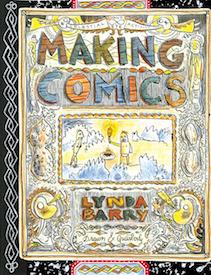
Lynda Barry, Making Comics
(Drawn & Quarterly)
MacArthur Genius Award-winning artist Lynda Barry is also a professor of art at the University of Wisconsin-Madison. Her new book Making Comics is both a tool kit of her comics-making exercises and a tender manifesto about how anyone can create. “Words and pictures together make something happen that is more than good or bad drawing,” Lynda Barry writes. “You don’t have to have any artistic skill to do this. You just need to be brave and sincere.”
–Nate McNamara, Lit Hub contributor
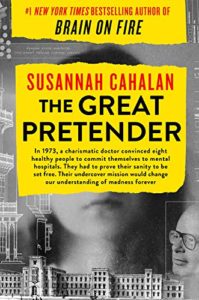
Susannah Cahalan, The Great Pretender
(Grand Central)
In the 1970s, Stanford psychologist David Rosenhan and seven other “normal” people went undercover into mental health institutions across the country to test the validity of diagnosis and treatment. The result was groundbreaking; their findings closed down whole facilities. To this day, their experiment is still often referenced as a milestone in our understanding of “madness.” But is it the whole story? Susannah Cahalan digs deeper, and brings the conversation David Rosenhan and his colleagues started to today’s mental health debates.
–Katie Yee, Book Marks Assistant Editor
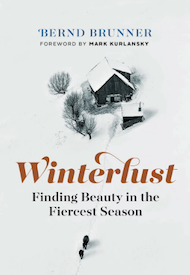
Bernd Brunner, Winterlust
(Greystone Books)
In an age of climate change, any writing about the dazzling beauty of winter takes on a subdued—almost nostalgic—tenor. Such is the case with Bernd Brunner’s slim, thoughtful meditation, Winterlust: Finding Beauty in the Fiercest Season. But the book isn’t all elegy. On the contrary, it celebrates the rituals and customs of winter taking place right now, all the world over, from the Indigenous communities of the Arctic to the sunny villas of Brazil, where beachcombers lament their 75-degree winters wrapped in parkas and wool hats. Whereas most people find danger and darkness in the “fiercest season,” Brunner finds beauty, even enchantment.
–Amy Brady, Lit Hub contributor
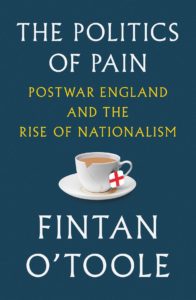
Fintan O’Toole, The Politics of Pain: Postwar England and the Rise of Nationalism
(Liveright)
Fintan O’Toole is one of Ireland’s sharpest and most compassionate political and social commentators (not to mention our foremost theater critic) and his analysis of the national obsessions, psychological hang-ups, and colonialism-derived paranoias that led to Brexit is an absolute must-read for anyone looking to understand why exactly Britain voted to self-immolate three years ago.
–Dan Sheehan, Book Marks Editor





